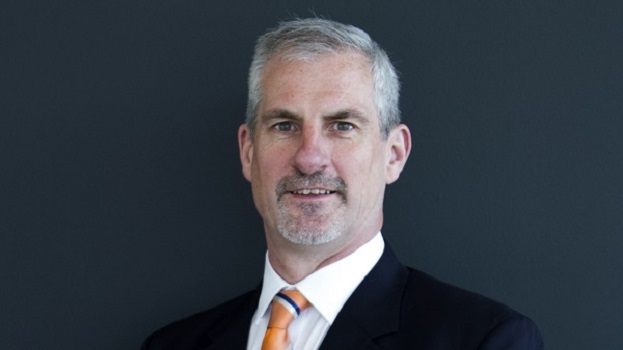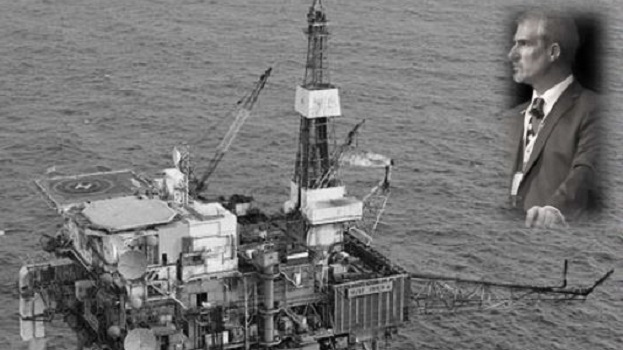Steve Rae had the luckiest of escapes. He explains here why inaction is never an option.
It has been over 30 years since an explosion at the Piper Alpha oil rig killed 167 people. Its legacy lives with us today – in the shape of significantly improved safety culture in the oil and gas sector, and through the shared memories of those who survived to tell the tale. The industries represented by CIRAS are no strangers to major incidents which have changed or claimed many lives.

Steve Rae
Can we still learn from Piper Alpha, all these years on? Steve Rae was working on Piper Alpha that fatal night and survived by leaping into the sea. Today, it helps Steve to share his personal experience and what he learned, in a bid to help prevent others going through what he did.
Tell us what happened to you that night
I arrived on Piper Alpha that day and went on shift in the evening. I recall my brief handover with my supervisor – he simply said: “It’ll be a quiet night, see you tomorrow”. I never saw him again.After the initial explosion I became acutely aware of the danger I faced, the need for self-preservation, and the need to remain in control. Perhaps even make selfish choices that felt right for me. I didn’t follow my own work crew, who sought refuge in our accommodation block – a choice that saved my life.
Instead, I made my way as far down the rig as possible, before realising my only option was to jump into the sea, where I was quickly picked up by a rescue ship. Everyone who remained in the accommodation block perished.
What impact has Piper had on you?
My escape and survival left me intolerant of those who choose to display shoddy workmanship, and who have a poor work ethic. I was a fairly driven individual before Piper, but this was heightened by my experience. I take nothing for granted in life and feel a genuine concern and responsibility for those that I work with. It also taught me important lessons about choice.Tell us what you’ve learned about ‘choice’
I lost my father very young and as one of five siblings I had to grow up quickly, to support my mother and take personal responsibility for my life. This taught me to think carefully about my choices from a very young age – and also that poor choices often result in undesirable consequences. This is something I’ve worked hard to pass on to my own five boys.
The night of Piper Alpha, I learned that, while we are all free to choose, we are never free from the consequences of our choices. A powerful memory I have is the accommodation block door. It should have been kept closed so the block could serve as a place of refuge in circumstances such as this. However, it would often be left swinging open as closing it was awkward and took time. I always closed the door but chose not to challenge others who did not.
I failed to recognise the consequences of my inaction, till that moment I stood at that very door, watching the fumes and smoke we were fleeing from pour in through the swinging door to the accommodation block. I live with this thought most days. What I learned was – by turning a blind-eye and walking away I made a poor choice; you should make choices as if the lives of all your loved ones depend on it. I should have intervened, it’s that simple.

Do you think people become ‘blind’ to hazards when they go unaddressed for a long time?
I do believe that people become desensitised to their regular environment. We suffer from ‘situational awareness fade’ as we become accustomed to our surroundings. With hindsight, I do believe that Piper Alpha had been a construction site for most of its life and that certain risky practices had become the norm. Piper had been operating in this mode for years and prior incidents and fatalities had been too quickly forgotten.Finally, what advice do you have for those reading this
- Remember to question and challenge your personal choices frequently.
- If you share a work vehicle or are transferred to another work location, develop the habit of taking time to do a situational assessment - it can take as little as one to two minutes.
- Change the routes you take through the depot, station, car park - this guards against you becoming ‘blind’ to hazards.
- Make it your business to talk about the behaviours you want to reinforce. Share stories - ask your colleagues for their opinions and share yours.
- Encourage others to inspect your specific place of work and do the same in theirs.
- Practise reporting your own behaviours, work environment conditions and practices with a trusted colleague.
- Expand the sharing amongst your colleagues and encourage them to do likewise.
- Most importantly learn to be relentless in your approach to personal responsibility for your own safety.
Tags
- Other
